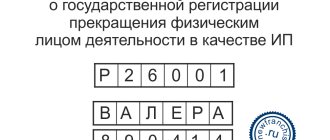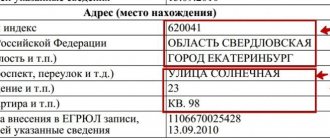Who creates a non-profit organization
Founders create non-profit organizations. The founders of NPOs are described in Article 15 of the Law “On Non-Profit Organizations”.
The founders can be
:
- capable citizens of Russia;
- legal entities;
- stateless people or foreign citizens located in Russia.
Cannot be founders
:
- foreigners and stateless people if Russian law prohibits their stay in the country;
- included in the list of people who facilitate money laundering and terrorism (according to paragraph 2 of Article 6 of Federal Law No. 115-FZ),
- organization or person associated with extremist activities;
- the head of an organization whose activities have been banned by a court under the law on extremism or counter-terrorism. Such a person does not have the right to create an NPO for 10 years after a court decision to liquidate his organization.
An NPO can be created by one person or a legal entity. The exceptions are some types of NPOs:
- To create non-profit partnerships, associations (unions) (Article 15, paragraph 1.3. No. 7-FZ), at least two founders are required (Article 123.9 of the Civil Code (Civil Code)).
- Public organizations are created by at least three founders (Article 18 No. 82-FZ “On Public Associations” and Article 123.5 of the Civil Code of the Russian Federation).
- Local religious organizations are created by at least ten Russian citizens permanently residing in a given area.
- Centralized religious associations are established by three local religious organizations of the same religion (clause 1 and clause 2 of Article 9 No. 125-FZ “On freedom of conscience and religious associations”).
A non-profit organization is created for an indefinite period. If necessary, establishes a term of activity in its charter.
The number of NPO participants is not limited.
Types of public organizations in Russia
The legislation provides several criteria for dividing public organizations.
1) Public organizations can operate with or without the status of a legal entity.
To obtain the latter, you do not need to specifically apply anywhere or register anything. It is enough to hold a meeting of the founders and document it with minutes. In terms of status, it is rather an informal association. It is not so popular because its legal powers are greatly reduced. There are no problems with them.
More popular are public organizations registered as independent legal entities. Their registration will be discussed below.
2) The second criterion for division is based on the territory of the NPO’s activities.
There are:
- Local public organizations (can operate within a specific municipality)
- Regional public organizations (operate within one constituent entity of the Russian Federation)
- Interregional public organizations (operate within several constituent entities of the Russian Federation, in each of which the public organization must have its own branch)
- All-Russian public organizations (to obtain this status it is necessary to meet increased requirements, and also have branches in at least half of the constituent entities of the Russian Federation)
I would also highlight a third criterion for division: industry.
From the point of view of processing documents for registration, it is extremely important to establish whether any special law regulates this area.
Public organizations have their own characteristics if they are created as
- children's or youth public organization
- political party
- sports organization
- trade union
- charitable or volunteer organization
- educational organization
- etc.
Each industry has its own subtleties. Be careful.
Another criterion for dividing is by level of activity , although this is more typical for all-Russian public organizations.
There may be top-level public organizations, as well as their structural units - public organizations that are part of them locally.
A classic example is political parties, within which separate regional associations are created locally. Each regional branch is a separate legal entity.
Ways to create an NPO
The NPO is created:
- by establishing a new organization;
- through the reorganization of another legal entity. In this case, the organizational and legal form can be left the same or choose another (Article 13 No. 7-FZ).
Religious organizations and political parties can only be created by institution. Other forms of NPOs can be created through reorganization.
An NPO is created by decision of the founders. The decision on establishment specifies information about the adoption of the charter, the amount and methods of formation of property, and the selection of governing bodies of the legal entity. When creating a corporate NPO, information about the results of the vote of the founders on the issues of creating and registering the organization is indicated.
An NPO is considered reorganized from the moment of state registration of a new organization (except for forms of reorganization in the form of affiliation) (Article 16 No. 7-FZ).
When creating an NPO, no authorized capital is created. The property of an NPO is formed during the work of the organization. The sources of property are voluntary financial and property donations of founders, participants or other persons (list of sources in Article 26 of Federal Law-7).
If an NPO plans to engage in activities that generate income, an authorized capital is required as for an LLC (for 2020 - 10,000 rubles, clause 5 of Article 50 of the Civil Code of the Russian Federation).
Register a public organization yourself or contact a lawyer
Here the choice is yours. If you really want to, you can sort out any issue. True, this will require some effort and time from you. Below I will try to describe in detail the procedure for registering a public organization and what difficulties you may encounter. I will be glad if you add something useful of your own in the comments.
But before I begin, I want you to pay attention to the following.
Do not think that creating a public organization is as easy as an LLC, and for this you just need to mindlessly download document forms from the Internet, fill out and submit them to the Ministry of Justice.
Even if you are a lawyer, take the drafting of documents, especially the charter, as seriously as possible. They must be perfectly verified from a legal point of view.
Remember - ALL DOCUMENTS THAT you submit for registration will be CHECKED VERY CAREFULLY by the Ministry of Justice!
You can read more about the typical mistakes of founders when preparing documents for registration of a public organization in my articles:
— TOP 20 errors in the charters of non-profit organizations (NPOs), due to which the Ministry of Justice often refuses registration. 2020
— TOP 7 common mistakes when choosing the name of a non-profit organization (NPO) – 2020
— How to correctly write the goals, objectives and subject of activity in the charter of a non-profit organization. Lawyer's advice. 2020
— Is it necessary to stitch together the charter, application and protocol when registering a non-profit organization (NPO). Personal experience. 2020
If everything I’ve written up to this point hasn’t completely scared you away from registering a public organization on your own, go for it :). Below are my recommendations.
Choosing a goal for an NPO
A non-profit organization aims to achieve public benefits. To do this, NPOs engage in those types of activities that are prescribed in the charter and constituent documents.
The goals, depending on the form of the NPO, may be:
- social;
- educational;
- charitable;
- scientific;
- cultural;
- protecting the health of citizens;
- satisfaction of non-material and spiritual needs of citizens;
- sports development;
- conflict resolution;
- protection of the rights of citizens and organizations;
- provision of legal assistance;
- managerial.
The goal of a consumer cooperative is different - it is to increase the material and other support of its members by performing procurement, production or other work.
Some areas of activity are licensed and require non-profit organizations to obtain special permits (for example, educational services - Article 91 No. 273-FZ “On Education in the Russian Federation”).
How to create a social movement
August 7, 2011 Author KakSimply!
To date, social movements have not been sufficiently studied by sociological sciences.
But it is precisely with the advent of these very social movements that all sorts of transformations of the entire society or its individual structures begin.
A social movement is a movement consisting of a certain number of people and pursuing specific political, economic, social or other various social goals. Related articles:
- How to create an organization Instruction 1 In order to create a social movement, you must first contact the relevant authorities authorized to issue a public movement certificate. In the Russian Federation, such bodies are the Ministry of Justice or its territorial local bodies (to create an all-Russian social movement) and the Main Directorate of the Federal Registration Service for Moscow (to create a regional and interregional social movement).
2 Come up with a name for your social movement - it should be simple and reflect the essence of your activity. Gather at least 3 founders to create a social movement. Remember - the founders can be both individuals and legal entities.3 Prepare the constituent documents for creating a social movement, including the charter of the company. Register the legal address at which it will carry out
- How to create a government agency
- What do you need to become a party member?
NPO forms
NPOs have the following organizational and legal forms (Chapter 2 No. 7-FZ “On NPOs”):
- public and religious organizations (associations);
- indigenous communities;
- Cossack societies;
- funds;
- government corporation;
- state company;
- non-profit partnerships;
- private institutions;
- state and municipal institutions;
- state-financed organization;
- autonomous non-profit organization;
- associations (unions).
In Art. 50 of the Civil Code, these forms are supplemented with the following types:
- consumer cooperatives (including housing, housing-construction and garage cooperatives, mutual insurance societies, credit cooperatives, rental funds, agricultural consumer cooperatives);
- partnerships of real estate owners (including partnerships of homeowners, horticultural and vegetable gardening non-profit partnerships);
- public companies;
- bar associations and legal entities that are legal entities;
- notary chambers.
The Civil Code of the Russian Federation distinguishes two types of legal entities: corporate and unitary.
Corporate legal entities are organizations that are created by corporations; their founders have membership rights and form the highest governing body. This form includes public associations and movements, communities of indigenous peoples, Cossack societies, bar associations and formations, as well as associations and unions (paragraph 6, chapter 4 of the Civil Code of the Russian Federation).
Unitary legal entities are distinguished by the fact that their founders do not become its participants. These include autonomous non-profit organizations, institutions, foundations, and religious organizations.
When creating NPOs of different organizational forms, it is necessary to take into account the specifics of their legislative framework. Educational organizations are established by federal authorities or local (municipal) self-government and private individuals or legal entities. But those educational organizations that are engaged in the implementation of training programs in the field of defense, state security, ensuring law and order, are created only by the Government of the Russian Federation (clauses 4-8 of Article 22 No. 273-FZ “On Education in the Russian Federation”).
Therefore, when creating an NPO, one must be guided by the requirements of both the Civil Code of the Russian Federation and Federal Law-7 “On NPOs”, as well as special federal laws:
- No. 82-FZ “On Public Associations” dated May 19, 1995;
- No. 95-FZ “On Political Parties” dated July 11, 2001;
- No. 10-FZ “On trade unions, their rights and guarantees of activity” dated January 12, 1996;
- No. 125-FZ “On freedom of conscience and religious associations” dated September 26, 1997;
- No. 154-FZ “On the public service of the Russian Cossacks” dated December 5, 2005;
- No. 104-FZ “On the general principles of organizing communities of indigenous peoples of the North, Siberia and the Far East of the Russian Federation” dated July 20, 2000;
- No. 174-FZ “On Autonomous Institutions” dated November 3, 2006;
- No. 74-FZ “On National-Cultural Autonomy” dated June 17, 1996;
- No. 135-FZ “On charitable activities and volunteering (volunteering)” dated 08/11/1995;
- No. 63-FZ “On advocacy and the legal profession in the Russian Federation” dated May 31, 2002.
- No. 273-FZ “On education in the Russian Federation” dated December 29, 2012.
To realize the common goals of the participants, public associations can be created without state registration (Article 5 No. 82-FZ “On Public Associations”). To create such an association, you need at least three participants (individuals or legal entities) and a protocol of the general meeting, which contains an indication of the decision to create the association and approval of the charter.
NPO name
The name of the NPO must be chosen carefully. If the name does not comply with the law, state registration of the NPO may be denied.
The full name of the NPO indicates the organizational and legal form and nature of the organization’s activities (Article 4 of the Federal Law-7 “On NPOs”, Article 54 of the Civil Code of the Russian Federation). An exception is the names of political parties: they do not indicate that they are a public organization (organizational and legal form), but they must write the words “political party” (clause 1.1 of Article 6 of Federal Law No. 95-FZ “On Political Parties”).
An example of the name of an NPO indicating the form and nature of the activity and the political party: Charitable Foundation for Assistance to Disabled Children and Orphans “Yarzam”; Political party "United Party of People with Disabilities of Russia."
Non-profit organizations may have an abbreviated name. The exception is religious organizations: they must indicate their full name (clause 8 of Article 8 No. 125-FZ “On freedom of conscience and religious associations”).
The name of an NPO should not offend the morality, religious and national feelings of citizens. If this requirement is not met, then the NPO is denied registration (subclause 3, clause 1, Article 23.1 No. 7-FZ “On NPOs”).
NPOs can use the personal names of citizens in their names only if they have a written, notarized permit for the legality of their use (Article 19 of the Civil Code of the Russian Federation).
There are also restrictions on the use of the word “Russia” in the name of an NPO. This is permissible under a permit issued in accordance with the procedure established by the Decree of the Government of the Russian Federation dated September 24, 2010 No. 753 “On approval of the rules for issuing permits to include in the name of an NPO the official name “Russian Federation” or “Russia”, as well as words derived from this name "
Federal laws establish special requirements for the names of some types of non-profit organizations.
For example, the name of a public organization must additionally indicate the territorial area in which it operates (Article 28 No. 82-FZ “On Public Associations”).
Examples of NPO names indicating the territory: Altai regional public organization “BOXING FEDERATION OF THE ALTAI REGION” or Voronezh regional public organization for helping children and adults with autism spectrum disorders “Overcoming”
.
The names of educational organizations must contain the type of organization (clause 5 of Article 23 No. 273-FZ “On Education in the Russian Federation”) and additional information: level, focus, content of educational programs and additional functions (maintenance, boarding school, treatment, correction, rehabilitation , psychological and pedagogical support, technological or research activities).
After state registration, the NPO has exclusive rights to use its name (Clause 1.1, Article 4 No. 7-FZ “On NPOs”). Other organizations are not entitled to use it.
Refusal to register – for what reasons?
The Ministry of Justice may refuse to register an NPO on the following grounds (Article 23.1 of the Law):
- The submitted documents are contrary to the Constitution and laws of the Russian Federation;
- There is an association with a similar name;
- The name is offensive to the morality, nationality, religion of citizens;
- An incomplete package of documents has been submitted;
- The founder of an NPO is not entitled to hold this position by law;
- The decision to reorganize or change the constituent papers was made by an unauthorized person;
- The information provided was found to be unreliable;
- The applicant has not corrected the errors due to which the registration was previously suspended.
The decision to refuse is made in writing with an explanation of the reasons and is transmitted to the applicant within 3 days.
If registration is refused, representatives of the NPO may agree with this decision. In this case, they have the right to eliminate these shortcomings and resubmit the papers in the same order. If you disagree with the refusal, you can write a complaint to a higher authority or file a lawsuit to appeal the decision made by the Ministry of Justice.
General meeting of NPOs
After the founders decide to create an NPO, a general meeting is held.
At the general meeting, minutes are kept in which the decisions taken are recorded. After the meeting, the minutes are signed and stored along with the constituent documents of the NPO.
The protocol contains:
- Venue of the meeting.
- The date of the.
- Form of conduct.
- Full name of the chairman and secretary.
- Full name of the person responsible for counting votes.
- Approved name.
- Information about the elected supreme and executive management bodies.
- Location (registration).
- Sources of property formation.
- The procedure for the founders to create (memorandum of association).
- An order to selected responsible persons to collect a package of documents for state registration of an NPO.
- Counting votes for each item on the agenda.
- Signatures of persons participating in the meeting.
At the general meeting of founders, the Charter of the NPO is approved. It contains the name, nature of activity, organizational and legal form and place of registration of the NPO. The subject and goals of the activity, the management procedure, information about branches and representative offices, the rights and obligations of members (if there is membership), sources of formation of property, etc. are indicated.
Depending on the organizational and legal form of the NPO, the list of mandatory information in the Charter may change. The requirements for the charters of various NPOs are specified in the relevant laws: for a public association - in Art. 20 Federal Law “On Public Associations”; for an educational organization - in Art. 25 Federal Law “On Education”.
For example: the foundation's charter additionally contains information about the board of trustees and the procedure for the appointment and dismissal of officials (Article 14 of the Federal Law No. 7); the charter of an association or union contains information about the composition of governing bodies and the procedure for making decisions in the case of unanimous voting or a qualified majority of votes (Article 14 of the Federal Law-7)
.
The charter of an NPO may be changed if such a possibility was provided for (clause 3 of article 29 of the Federal Law No. 7).
At the general meeting, a constituent agreement is drawn up, which determines the procedure for the activities of the founders in creating an NPO, the conditions for the voluntary transfer of the property of the founders into the ownership of the NPO, the conditions and procedure for the withdrawal of participants from its membership.
Then the selected executive body of the NPO is given instructions to prepare a package of documents for state registration of the created NPO.
Documents for registration of an association
The freedom of civil society is also manifested in the creation of public organizations in Russia. They are considered created not from the date of state registration, but from the moment the decision on their creation is made at a conference or general meeting of founders. Thus, the state recognizes the right of citizens to associate as actually realized from the moment of the corresponding expression of will.
The registration procedure for associations is carried out according to the provisions of Art. 21 of the Federal Law of May 19, 1995 No. 82-FZ and consists of 2 stages: making a decision and making an entry on the creation of a legal entity in the Unified State Register of Legal Entities. From the moment the latter is committed, the public association acquires its legal capacity.
The list of documents for registering a public association is defined in clause 28 of the Administrative Regulations, approved by Order of the Ministry of Justice of the Russian Federation dated December 30, 2011 No. 455. It includes:
- Application for registration. Application form P11001 is used, approved by order of the Federal Tax Service dated January 25, 2012 No. ММВ-7-6 / [email protected] Information about the founders and the address (location) of the permanent governing body is indicated in the relevant columns of this application.
- Charter of an association or association (union) of public associations in 3 copies, bound and numbered.
- The founding agreement (agreement) or an extract from the minutes of the founding conference (congress, meeting, conference). The latter should contain information on the creation of the association, approval of the charter and the formation of governing and audit bodies.
- A document confirming payment of the state duty, the amount of which is determined in clause 1, part 1, art. 333.33 of the Tax Code of the Russian Federation and amounts to 4,000 rubles. Payment is made on behalf of the applicant as an individual.
- Minutes of constituent meetings (conferences, congresses) of structural units for all-Russian, interregional and international associations. A regional public organization does not provide additional documents, even if it has branches and departments within the subject.
- If a personal name or a copyrighted mark is used in the name (symbols, motto), permission to use it is attached to the package of documents.
A set of documents is submitted for registration no later than 3 months from the date of the constituent meeting. The process of entering an association into the register as a legal entity should last no more than 17 days. This is 3 times longer than for commercial associations and is due to the specifics of the status.
Location of the NPO
A newly created NPO must have a registered address; without it, it is impossible to register with the Ministry of Justice.
The place of registration of NPOs is entered into the Unified State Register of Legal Entities (USRLE). The address indicated in the Unified State Register of Legal Entities must coincide with the address of the location of the NPO (clause 2, Article 4 No. 7-FZ “On NPOs”).
At this address, registration and regulatory authorities communicate with NPOs (Article 5 No. 129-FZ “On State Registration of Legal Entities and Individual Entrepreneurs”). If the organization has not complied with the sent instructions, it bears responsibility, even if it is not at the specified address (Clause 3 of Article 54 of the Civil Code of the Russian Federation).
An NPO may indicate a residential premises as the address of its place of registration (and location).
The NPO begins work after entering information about its creation into the Unified State Register of Legal Entities; ends - after submitting information about the termination of activities to the Ministry of Justice (clause 3 of Article 49 of the Civil Code of the Russian Federation).
At this point, the stage of creating an NPO is completed, followed by state registration of the NPO.










